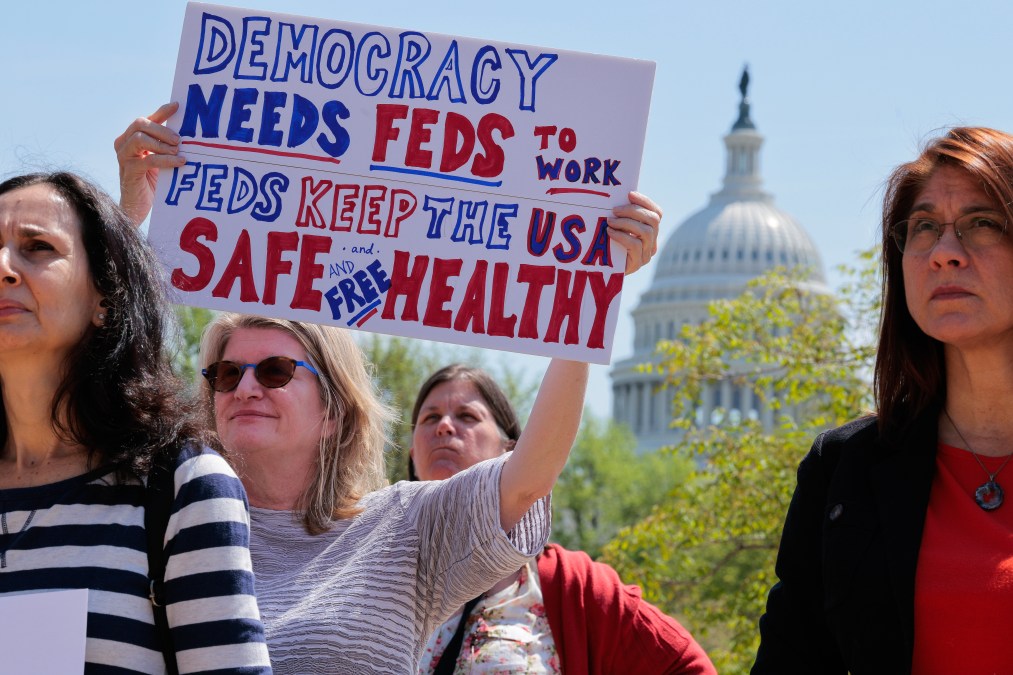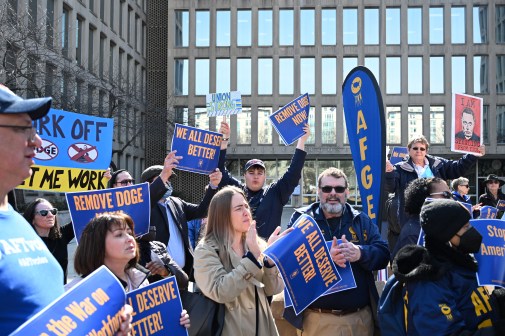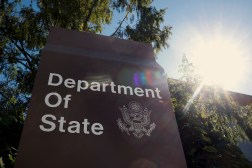Judge halts federal reductions-in-force amid shutdown

A federal judge granted a temporary restraining order Wednesday to put a pause, for now, on agency reductions-in-force during the government shutdown, saying they appear to be “politically motivated.”
In a ruling from the bench, Judge Susan Illston of the U.S. District Court for the Northern District of California ordered the defendant agencies to stop issuing RIF notices to federal employees in functions with workers represented by the unions who brought the lawsuit “during or because of the government shutdown.”
The order includes, but isn’t limited to, agency efforts to implement an email from the Office of Management and Budget encouraging agencies to consider RIFs in the event of a shutdown and further guidance from the Office of Personnel Management. Agencies are also enjoined from taking additional action to implement the RIFs it already issued Friday, Illston said.
Illston’s decision came at the end of a hearing Wednesday to discuss the possible order. Illston began that hearing with a preview of how she was leaning, saying she was inclined to grant the order and that the plaintiff unions were likely to succeed in demonstrating that the government’s actions were illegal.
During those opening remarks, Illston criticized errors in the estimates from the government about the number of employees impacted and said the government’s actions do not appear to be thought out.
“It’s very much ready, fire, aim on most of these programs, and it has a human cost, which is really why we’re here today. It’s a human cost that cannot be tolerated,” Illston said.
Illston also said that the RIFs appear to be “politically motivated.” She pointed specifically to language in the OMB memo blaming Democrats, as well as a post to social media by President Donald Trump in which he said that he that he was meeting with OMB Director Russell Vought “to determine which of the many Democrat Agencies, most of which are a political SCAM, he recommends to be cut” and that he couldn’t believe Democrats would him give him “this unprecedented opportunity.”
“The politics that infuses what’s going on is being trumpeted out loud in this case,” Illston said. “And there are laws which govern how we can do the things that we do … including laws that govern how we do RIFs, and the activities being undertaken here are contrary to the laws.”
The order is the latest in a challenge by the American Federation of Government Employees and American Federation of State, County and Municipal Employees arguing that OMB and OPM exceeded their authority and acted contrary to law in issuing the memo and guidance to agencies on reductions-in-force during the shutdown. Among their arguments: That OMB’s “lapse memorandum” misinterprets the Antideficiency Act and asks agencies to carry out “RIFs as ‘excepted activities’ during a shutdown,” which is not stated under that law.
Illston appeared to agree with that assessment during the hearing, saying that OMB’s assertion in its memo that programs that go unfunded no longer have to be carried out “is completely untrue.”
“It is not the law. It is inconsistent with the law,” Illson said.
The government, however, argued that the plaintiffs haven’t met the bar for irreparable harm. Elizabeth Hedges, a Department of Justice lawyer representing the government, argued that the court should reject the lawsuit and motion for a temporary restraining order, as a restraining order would expire before the RIFs went into effect and the employment harm themselves are reparable.
“We’re still dealing with classically reparable harms of the sort that the Supreme Court has said are reparable — loss of employment, loss of benefits, loss of wages — those are the sorts of things that a body like the [Merit Systems Protection Board] can remedy,” Hedges said.
In response to the court’s decision, the plaintiff unions celebrated it as a win.
“This decision affirms that these threatened mass firings are likely illegal and blocks layoff notices from going out,” AFSCME President Lee Saunders said in a written statement. “Federal workers have already faced enough uncertainty from the administration’s relentless attacks on the important jobs they do to keep us safe and healthy. They deserve respect for the work they do — not to be treated as political pawns by the billionaires running this administration who see workers as expendable.”






